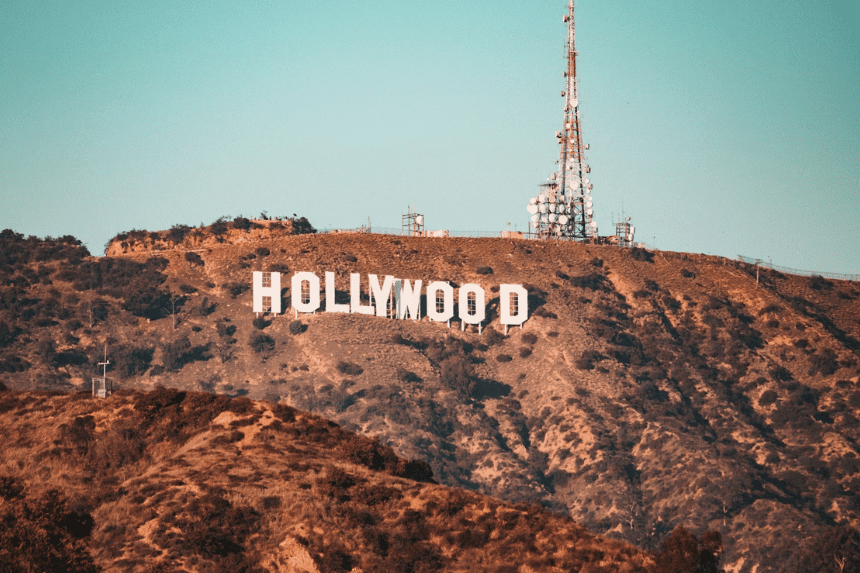Under President Donald Trump’s direction, the U.S. film business is undergoing a radical upheaval. A 100% tariff on films made outside of the United States is causing a new trade directive to grab attention worldwide. The president claims that this approach is required to safeguard and reconstruct the homegrown movie industry. The government argues that strong financial incentives provided by other nations are attracting significant American production elsewhere, therefore compromising American employment and national security.
In a social media tweet, Trump said, “We want movies made in America, again.”
Suggesting that maintaining stories inside the boundaries of the nation is a matter of national interest, the president further connected foreign film production to propaganda and message. This declaration represents a new phase in his larger economic plan, which, through strong tariff policies, has already affected various sectors.
From the start, it is abundantly evident that the Hollywood taxes on foreign-made films could have long-term effects not only for Hollywood but also for the worldwide entertainment sector.
How Might These Hollywood Tariffs Affect American Film Production?
Many questions concerning how the new policy would be carried out remain unresolved despite the robust rhetoric. Whether American companies that decide to film movies overseas would be subject to these taxes is yet unknown under Trump. Driven by access to several sites, tax benefits, and cost reductions, this is a standard industry practice.
Filmed outside the United States were big-budget films such as Wicked, Gladiator II, Deadpool & and Wolverine. Although American businesses create them, their use of foreign sites could draw attention should the tariffs be generally implemented.
Streaming platforms create still another area of uncertainty. Will the Hollywood taxes on foreign-made films cover anything published via digital platforms like Netflix, Hulu, or Amazon Prime, or only movies screened in theaters? Furthermore, a clear question is whether the tax will be based on box office results, manufacturing costs, or another criterion.
Without this knowledge, studios could find it challenging to decide where to film their future films or create their production plans. Industry players are advocating open rules and better communication. Read another article on Trump Announces 25%
How Are Foreign Governments Reacting to Tariffs?
Not surprisingly, the world community responded fast. Both Australia and New Zealand, with thriving film sectors, have shown great support for their businesses. The Home Affairs Minister of Australia promised to be “unequally” supportive of home producers. Christopher Luxon, the prime minister of New Zealand, underlined that the government will keep pushing for the film industry and is keeping a careful eye on events.
Mostly because of competitive incentives, professional crews, and amazing scenery, both countries are known as top sites for foreign film production. These nations worry that the Hollywood taxes on foreign-made movies would harm their diplomatic ties with the United States and the movie industry.
Furthermore, likely to be released remarks once the whole policy specifics are made public are the United Kingdom and Canada, other major actors in international filmmaking. Their film businesses also mostly depend on working with American studios, which can be in danger depending on this new trade approach.
Might the tariffs backfire on the American film sector?
Although the program seeks to boost American film output, several analysts caution it may have unanticipated results. The success of Hollywood mostly depends on worldwide cooperation and distribution. Every year, the worldwide box office adds billions to American movie earnings.
China, which lately declared it would cut its quota of U.S. films authorized in the nation, responded among the most alarming ones. Made in direct opposition to U.S. tariff policies, this move indicated the start of a probable cultural trade conflict.
“The wrong action of the U.S. government to abuse tariffs on China will inevitably reduce the domestic audience’s favorability towards American films,” the China Film Administration said.
The ripple effect might be significant. Should U.S. movies find less access to foreign markets, studios might see a notable income loss, which would cause possible layoffs and production delays—exactly the problems the new policy aims to fix.
Moreover, smaller production businesses and independent filmmakers could find it extremely challenging to negotiate this convoluted trade terrain.
How is the U.S. government helping homegrown film?
President Trump has named three well-known Hollywood personalities—Jon Voight, Mel Gibson, and Sylvester Stallone—as official envoys in an attempt to back his initiative. Their goals are to encourage American cinema output and draw money back to American theaters.
Trump said Hollywood is a “great but very troubled place” and thinks these emissaries can help bring its previous splendor back. The government also argues that the Hollywood taxes on foreign-made movies will boost local employment and revive failing production facilities throughout the nation.
Industry analytics company ProdPro claims that last year’s 26% decline in U.S. film production spending was $14.54 billion. Countries including Australia, Canada, and the UK had higher investment at the same time, implying a change in world production power. According to the government, this is a pressing problem that drives the suggested tariffs most importantly.
What Right Now Should Studios and Filmmakers Do?wn film?
Professionals in the sector have to remain vigilant and ready while uncertainty hangs around. Updates from the Department of Commerce and the U.S. Trade Representative should be under constant attention by studios. Understanding the consequences of the tariffs and planning appropriately also depends on the legal and trade advisers.
Many producers are currently considering the advantages of filming overseas versus the possibility of extra expenses. Domestic sites might see a comeback in demand, particularly if the Hollywood taxes on foreign-made movies are extensively applied.
One thing is certain: the policy represents a major change in the junction of trade and entertainment, even if the long-term consequences are still developing.
Ultimately: A Hollywood Turning Point
Hollywood tariffs on foreign-made movies show a change in American attitude toward cultural and economic impact, not only a political tool.
Both opportunities and difficulties lie ahead as global responses become more robust and the sector gets ready for change. Hollywood and its worldwide allies are intently observing for now, waiting for the next action in this high-stakes policy change.








